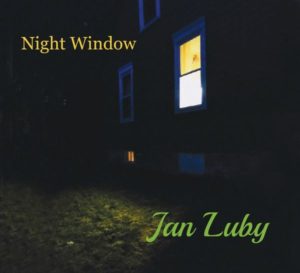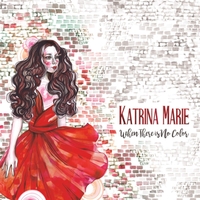 Jan Luby has grown into an even stronger artist on her new album, Night Window. Her elegant vocals, singer-songwriter sensibilities, and unique artistic flourishes weave into a sold work of expression and of craftsmanship.
Jan Luby has grown into an even stronger artist on her new album, Night Window. Her elegant vocals, singer-songwriter sensibilities, and unique artistic flourishes weave into a sold work of expression and of craftsmanship.
Opening track “Coloring Outside The Lines” is a call to free thinking, to not follow a pattern or prejudice. Luby’s crisp, clear vocal milks the emotive warmth of her lyrics for all their worth and delivers them to the listener with tender aplomb. She has a way of widening her vocal expression on her way through a verse that makes it shine brighter and feel more empathetic. Describing her childhood adventures is another winsome feat in this song.
“Fireflies” is a dance of words as they come through this singer-songwriter’s lilting, lively approach. Gentle acoustic guitar strums and their violin companion, played by Cathy Clasper-Torch, weave a warm platform for Luby to make her lyrics move around with the same lithe smoothness of that violin.
Title track “Night Window” travels along the currents from a rippling acoustic guitar melody. Luby’s voice, whispery pretty over the natural instrumentation, moves with a slow beauty. She caresses her lyrics with soothing vocal tones, and the Clasper-Torch moving alongside her completes the mood, conjuring a meaningful longing.
“Black Sparrow Tattoo” is an ode to a sailor love who couldn’t return to her port very often. Asserting her vocal at just the right moments, Luby pushes this song forward, making its hurtful longing come to three dimensional life. While the second half of the song is even sadder, Luby does not affect more vocal emphasis on that and that makes it even more poignant. It certainly helps to have Billy Novick’s penny whistle working its forlorn magic.
“Lullabies” has got true lift under its sails. Luby’s sturdy vocal application strengthens this piece, and her higher vocal pitches and sudden shifts in dynamics fill in the space, emotion, and everything else. She also moves her song along with an elegance of purpose not easily matched.
Luby sings of her resilience in “Don’t Worry About It,” a call to get back up on one’s horse, no matter how long it might take. Her voice wraps warmly around her lyrics like a snug mitten and a violin line travels around with a tender tone. Together, they weave a respectful tone to one woman’s resolve and determination.
An ode to immigrant struggle, “Las Patronas,” features Luby using her vocal in brief arcs per verse, making her emotional content feel like a salute to her subjects. Harmonica player Cheryl Arena captures the old world feeling with her yesteryear melodic line. Luby, meanwhile, keeps it real when she sings in Spanish without missing her mark in tone, timbre, and dynamics.
“Living On The River” is a sparse, dark beauty. Luby’s crisp vocal edge, buttressed by moody cello(Tim Tompkins) and slow rivulets of acoustic guitar notes, cuts upward and onward, a beautiful thing that cuts its own edge. The slower motions of this piece perfectly capture the motions of a river floating underneath a houseboat. The tale she tells is as forlorn as the musical and vocal accompaniment and it all comes together in one well constructed scene.
“Steady Ground” combines Luby’s vocal elegance with her plucky acoustic guitar chords. She weaves a dreamy pillow to express her mellow contentment with a current relationship. A steadiness in vocals and guitar capture the “Steady Ground” of the song and those chords have a really cool way of being played, like a splash of notes.
“Sea Glass” finds Luby crooning alongside a sparkling violin line. That violin plays to a beat set by a repetitive acoustic guitar note. Together, the instruments create a brittle, emotive quality that perfectly captures the essence of Luby’s theme. She gives her words a light treatment, caresses them just enough with her voice to keep them beautiful in their own space and time.
Luby shows her tough mama side with “Crazy Streak.” Nobody will want to mess with this singer-songwriter after they hear how she take care of trouble in this a cappella rant, buttressed by second vocalist Kim Trusty.
Closing out her album, Luby sounds much more vulnerable, in a witty way, during “Age With Grace.” Brilliantly accompanied by Cheryl Arena’s light, lilting harmonica line, we feel what the singer-songwriter feels and we can relate to her universal theme.
Luby has come a long way since her previous fine album. On this Night Windows work, she not only utilizes the singer-songwriter format to express her thoughts and emotions. She knows how to stretch that format into larger than life expressions. Singing in Spanish on “Las Patronas,” belting like a tough mama on “Crazy Streak,” and crooning sweetly alongside a penny whistle on “Black Sparrow Tattoo” she reveals herself an artist with many colors on her palette. Luby’s creativity, musicianship, and guest musicians ring in with clarity of tone here and it was all well documented at Melvillle Park Studios with Steve Friedman turning the knobs

